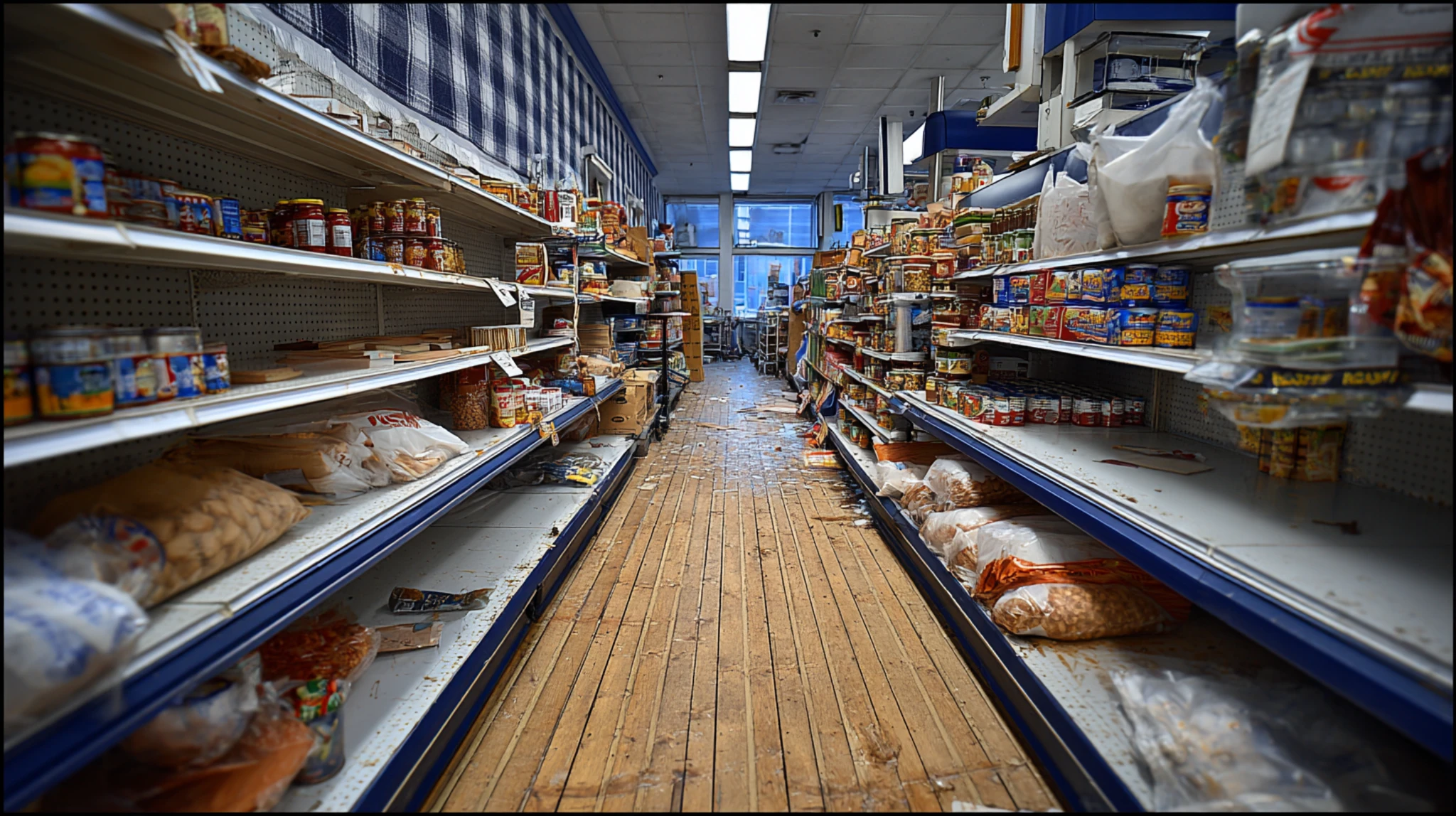When the lights go out and the dollar dies, people still need to eat, drink, heal, and survive. Civilization may crumble, but trade doesn’t. It adapts.
Cash won’t be king anymore. It’ll be kindling. In a true collapse—whether caused by economic implosion, EMP, war, or systemic failure—money loses the only thing that makes it valuable: trust. People stop accepting it, not because it isn’t printed anymore, but because it no longer buys anything.
What rises in its place isn’t chaos—it’s barter. It’s the black market. It’s trade built on need, scarcity, and human connection. And it’s a brutal game if you don’t understand the rules.
If you want to survive long-term, you need to stop thinking like a consumer and start thinking like a trader.
Why Money Dies in a Collapse
Modern money is based on faith—faith in the system, in the government, in stability. But when that system fails, when the banks shut down, and when shelves are empty and ATMs go dark, that faith dies fast.
Inflation spirals. Paper becomes worthless. Cards stop working. Digital wallets vanish. People quickly realize that no one wants cash when they’re starving or freezing.
In its place, value gets recalculated in raw, physical terms: What can you use? What can you eat? What can you trade that keeps someone alive one more day?
That’s the new economy.
Barter is Immediate, Brutal, and Real
Barter is the most primal form of trade. It’s not about wealth—it’s about necessity. You have bullets, I have medicine. We trade. No contracts. No receipts. Just survival.
But it’s not easy. Without a universal medium like cash, barter becomes awkward and tense. Value is subjective, negotiations are sharp, and trust is scarce. Every trade carries risk.
You may need to trade something valuable to get what you need—but you also have to avoid showing desperation. Desperation gets you cheated, robbed, or worse.
That’s why the best traders don’t just collect stuff—they collect information, leverage, and options.
What Becomes Valuable When Money Doesn’t Matter
Not everything will be worth trading. Luxury goods like jewelry or designer clothes might be worth something later, but in the first year of collapse, it’s functional items that rule the economy.
The most in-demand trade goods often include:
Clean water and filters
Medicine – antibiotics, painkillers, antiseptics, bandages
Fuel – propane, gasoline, alcohol
Ammo and firearms – especially in small, common calibers
Food – especially high-calorie, shelf-stable items like rice, beans, canned meat
Tools and blades – knives, hatchets, sharpening stones
Hygiene supplies – soap, toilet paper, menstrual products
Batteries and solar chargers
Seeds – especially heirloom types
Over time, comfort items like coffee, tobacco, alcohol, and even chocolate will grow in value—not because they’re necessary, but because morale becomes a currency of its own.
Black Markets Will Rise Fast—And Rule the New Trade
Where there are restrictions, there are black markets. If martial law takes hold, if checkpoints are set up, or if certain goods are outlawed, an underground economy will explode almost overnight.
These markets will operate out of hidden basements, abandoned stores, improvised flea markets, or mobile caravans. Cash might still be accepted at first, but barter will dominate. So will intimidation. So will lies.
If you plan to trade in black market spaces, go in armed, alert, and preferably with backup. Never reveal your full stash. Never bring your best items to your first trade. And never, ever trade at home.
The smart survivor keeps layers of trade goods—some for high-end bartering, some for small-time deals, and some for deception.
The Art of the Trade: Surviving in the Market
To trade well, you need more than stuff. You need the ability to read people, control your emotions, and negotiate under pressure. You need to know when to walk away and when to accept a loss for long-term gain.
Barter is about relationships as much as value. If you’re trustworthy, reliable, and useful, people will come to you. If you’re unpredictable, stingy, or dangerous, they’ll avoid you—or worse.
Keep a mental ledger of who owes you. Keep an ear out for rumors—who’s got what, who needs what, who’s desperate. That information is currency.
And don’t forget: trade isn’t always item for item. You can barter skills. Can you sharpen blades? Set bones? Fix solar panels? Teach? Skills are often more valuable than objects—and they can’t be stolen.
Security in Trade: Don’t Get Burned
Trading during collapse is dangerous. Every deal carries the threat of violence, betrayal, or ambush. That’s the reality.
To stay alive:
Trade in neutral or public places with escape routes.
Avoid returning to the same spot often.
Bring muscle if you can—someone to watch your back.
Keep your best gear hidden until the deal is sealed.
Never reveal your main supply stash. Never.
Trust is a luxury. Build it slowly. Guard it fiercely.
Preparing Now for a Post-Collapse Economy
If you're reading this before things go bad, you're already ahead. But don’t stop with stockpiles—start preparing for trade.
Think in terms of layers:
Have items for bulk trade (beans, rice, ammo).
Keep small, high-value items for discreet deals (lighters, medicine, seeds).
Learn a trade skill that’s portable and useful.
Build relationships with people who have different preps than you.
Practice bartering at flea markets, garage sales, or prepper meetups.
When the collapse hits, you won’t have time to learn how commerce works all over again. You need to be ready to adapt—and profit—from day one.
Barter may seem primitive. Trading bullets for antibiotics may sound desperate. But it’s not fiction. It’s history. It’s how humans have survived collapse after collapse—when empires fall, when governments vanish, when money turns to dust.
In the end, value never disappears. It just changes shape. And the ones who understand that early will not only survive—they’ll thrive.



